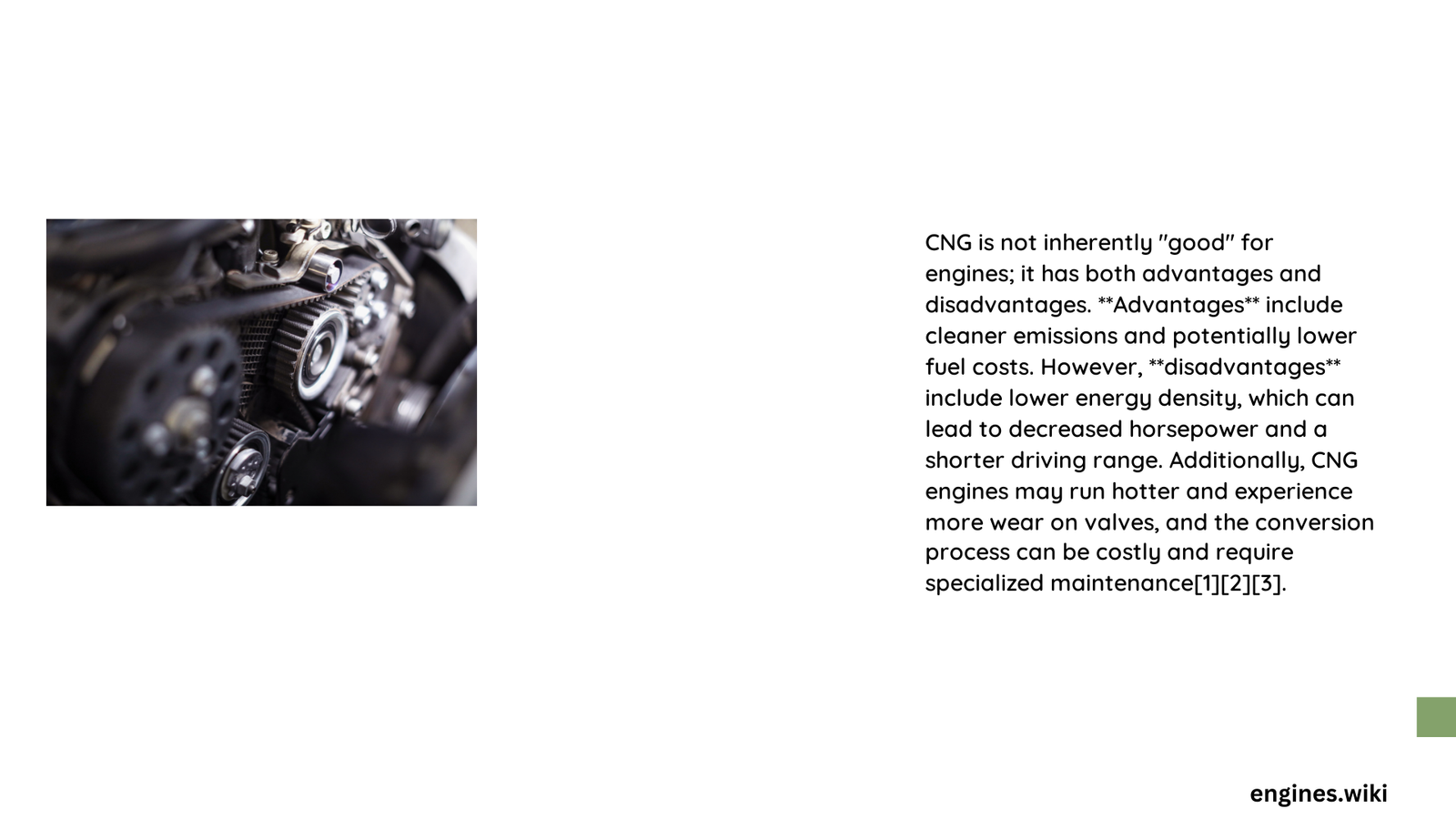Compressed Natural Gas (CNG) represents a complex automotive fuel alternative with nuanced implications for engine performance. Vehicle owners and engineers increasingly evaluate CNG’s potential, weighing its environmental benefits against traditional gasoline engines. This comprehensive analysis explores CNG’s multifaceted impact on engine functionality, revealing critical insights into power output, efficiency, emissions, and long-term mechanical sustainability.
What Performance Characteristics Define CNG Engines?
How Does CNG Impact Engine Power?
CNG engines demonstrate distinctive power characteristics compared to traditional gasoline powertrains. Research indicates that CNG-powered engines typically produce approximately 10% less indicated power and torque across various operational speeds.
Key Power Performance Metrics:
– 11% lower power output between 1500-4000 rpm
– Reduced volumetric efficiency during induction stroke
– Slightly diminished acceleration capabilities
Can CNG Improve Fuel Efficiency?
While CNG engines might exhibit reduced raw power, they offer compelling fuel efficiency advantages:
| Metric | CNG Performance | Comparison to Gasoline |
|---|---|---|
| Fuel Consumption | 11-39% Lower | Significant Reduction |
| Brake Specific Fuel Consumption | 235 g/kW h | More Efficient |
| Cost Per Mile | Approximately $0.11/mile | Economically Advantageous |
What Emissions Benefits Does CNG Provide?
CNG engines demonstrate remarkable environmental credentials:
- Reduced Greenhouse Gases
- 33% lower CO2 emissions
- 60% decreased carbon monoxide output
-
53% reduction in unburned hydrocarbons
-
Particulate Matter Performance
- Significantly lower particulate emissions
- Five times fewer emissions compared to diesel engines
Does CNG Affect Engine Longevity?
CNG’s sealed fuel systems contribute to potential maintenance advantages:
- Reduced fuel system contamination
- Lower breakdown frequency
- Potentially extended engine lifespan
- Minimized wear and tear risks
What Technical Considerations Exist for CNG Engines?
Potential Limitations:
– Slightly reduced power output
– 50% increased nitrogen oxide emissions
– Requires specialized fuel infrastructure
– Potential higher initial vehicle conversion costs
Practical Recommendations for CNG Adoption

- Evaluate individual driving requirements
- Consider local fuel infrastructure
- Assess long-term economic benefits
- Consult automotive professionals for personalized guidance
Conclusion
CNG presents a nuanced automotive solution balancing environmental responsibility with technical performance. While not a universal solution, it offers compelling advantages for specific use cases, particularly in fleet and commercial vehicle applications.
Expert Insights
Automotive engineers recommend viewing CNG as a complementary technology rather than a complete gasoline replacement. Its benefits emerge most prominently in controlled, consistent operational environments.
Reference:
– Dashti et al., Experimental Investigation of CNG Engines
– NREL Performance Comparison Report
– Greg’s Petroleum Service CNG Analysis
